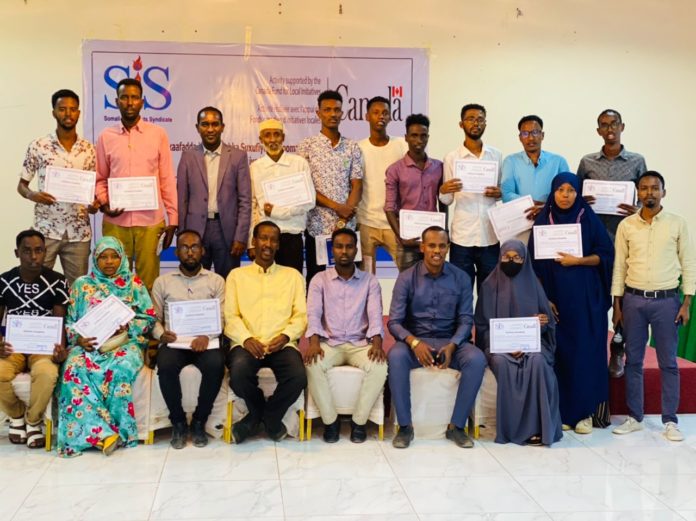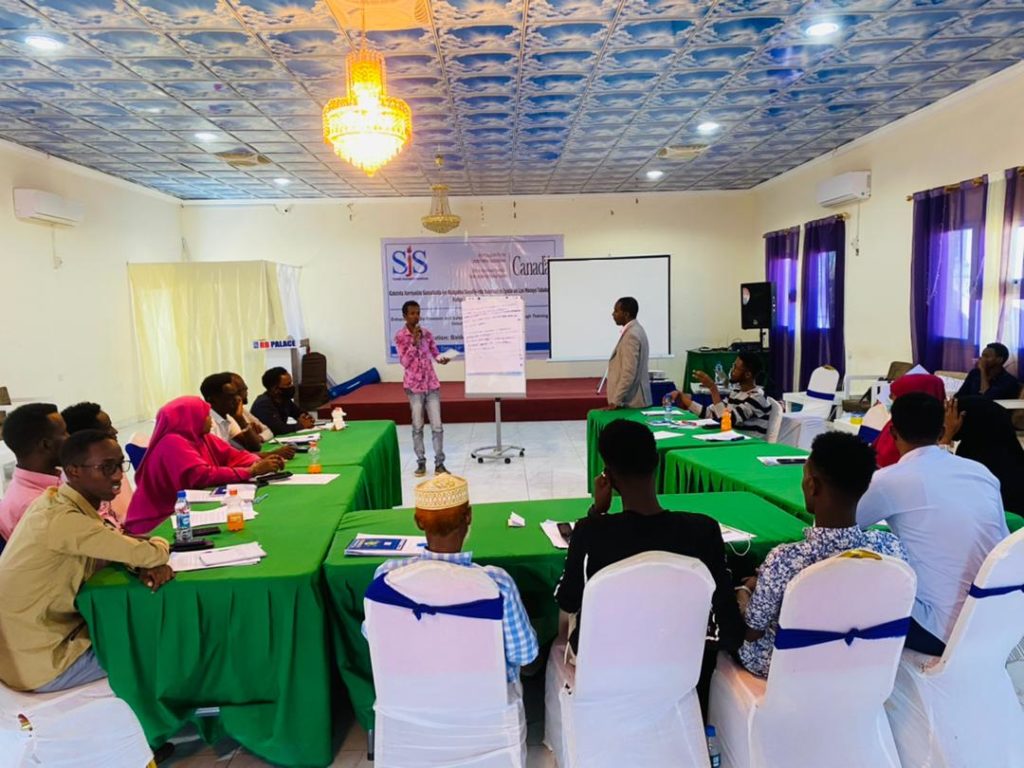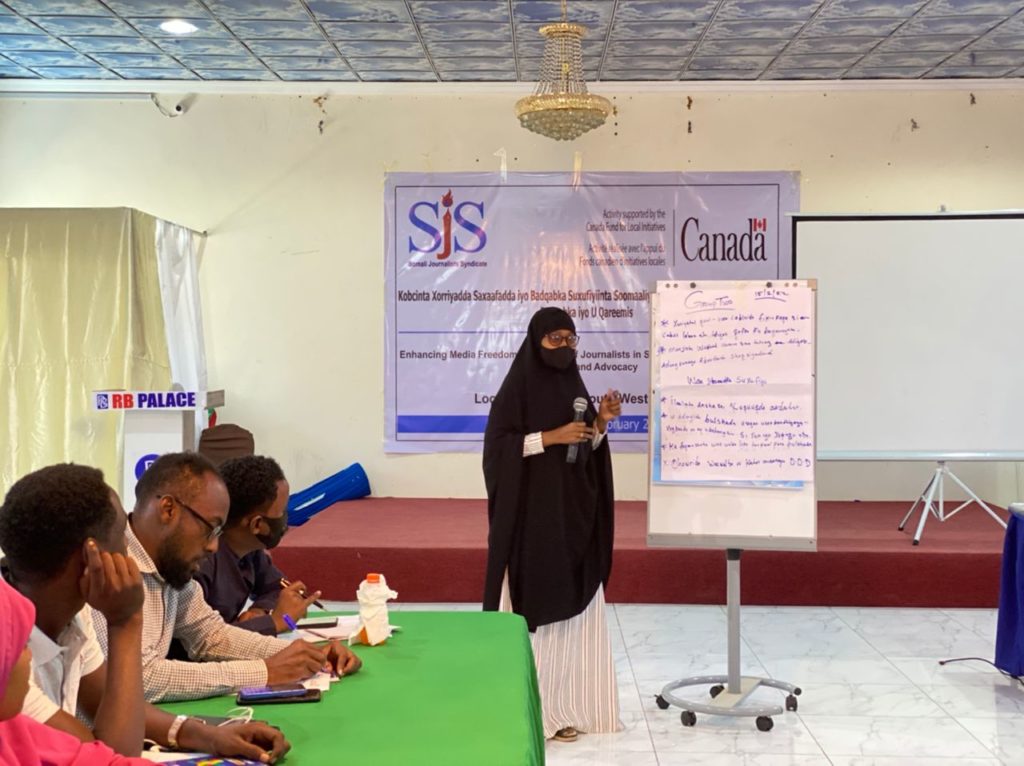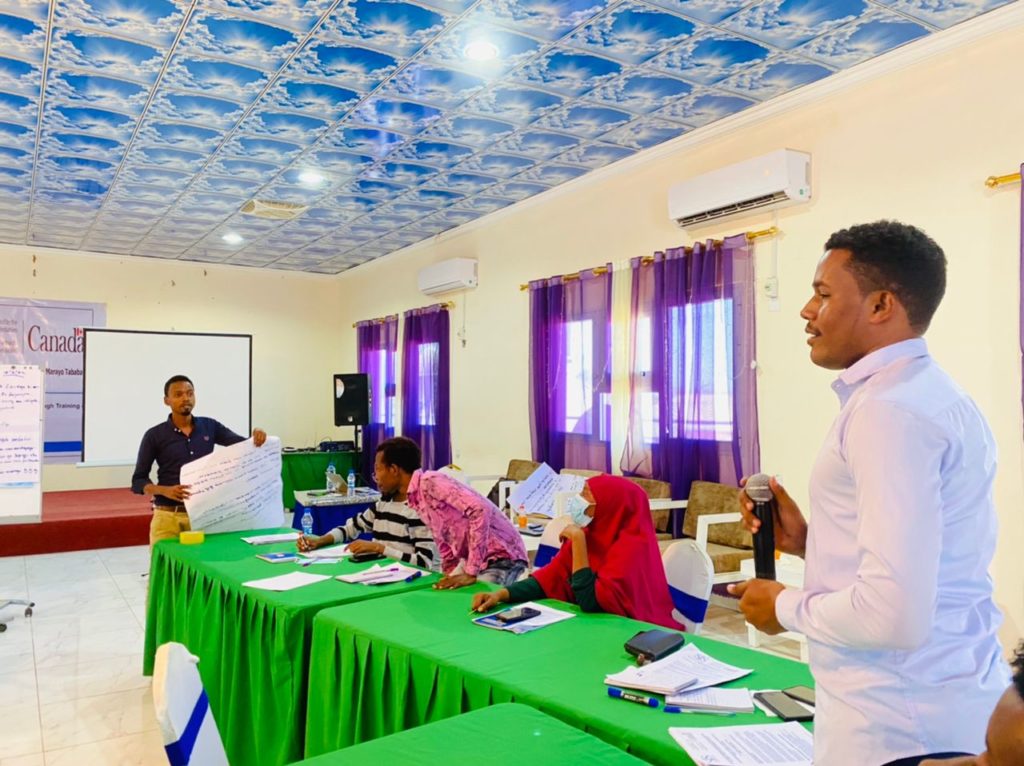MOGADISHU, Somalia 18 February, 2022 – Somali Journalists Syndicate (SJS) has concluded the fourth round of a series of trainings to improve the safety and security of Somali journalists and media freedom with the support from the Canada Fund for Local Initiatives (CFLI) in Baidoa, South West State Somalia.
The training program, which has been running from July 2021 to February 2022, has benefited more than 90 local journalists in five regions of Somalia: Banadir, Hirshabelle, Puntland, Galmudug and South West State. Nearly 40% of the participants were female journalists in the five regions.
Baidoa-based journalists who completed the training on Wednesday described how they were working under perilous conditions, with little or no security training available to them.
“I have been working for more than seven years in the media. I have never received security training. As a female reporter, I used to go to the radio station every morning worried about my safety and that of my colleagues. Now having received this training, I am less worried because I got safety skills that can help me,” said Mariya Moalim who works for Radio Warsan, the oldest radio station in Baidoa and one of the independent stations targeted by government forces and militants in the past years.
Addressing the participants at the conclusion day, Omar Mustafa Nur, one of the directors of the South West State’s Ministry of Information acknowledged that the training was a timely one as the country undertakes the (s)election of the parliamentary seats, a process that has endangered the safety of many local journalists.
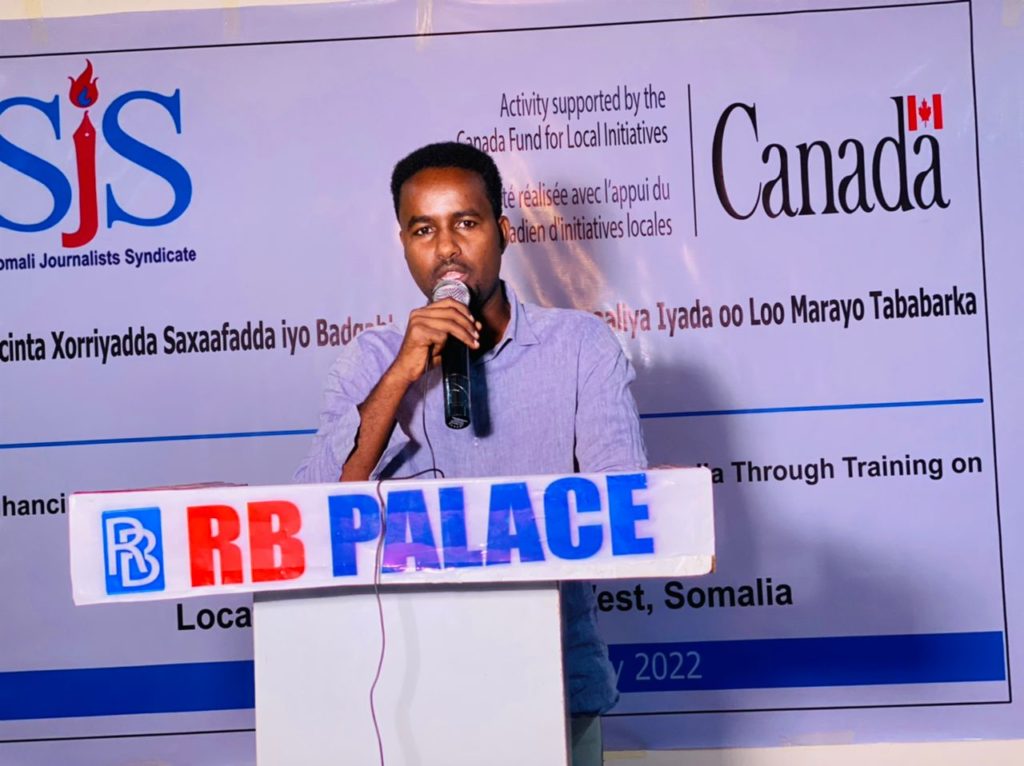
“Baidoa has been one of the deadliest places for journalists after Mogadishu and Galkayo. Today many of the practising journalists and their newsrooms lack resources to commit safety training,” said Mr. Omar himself a former TV journalist. “We commend SJS for creating and implementing the safety training initiative intended for local journalists. I believe the safety training could improve the security situation for journalists working in the South West State of Somalia.”
The Chairman of the Somali Media Association (SOMA) which is the largest independent media employers’ network, Hilal Sheikh Shueyb, noted that security remains a major concern for journalists working for local media houses and that had negatively affected the freedom of the media outlets they work for and the quality of their reporting.
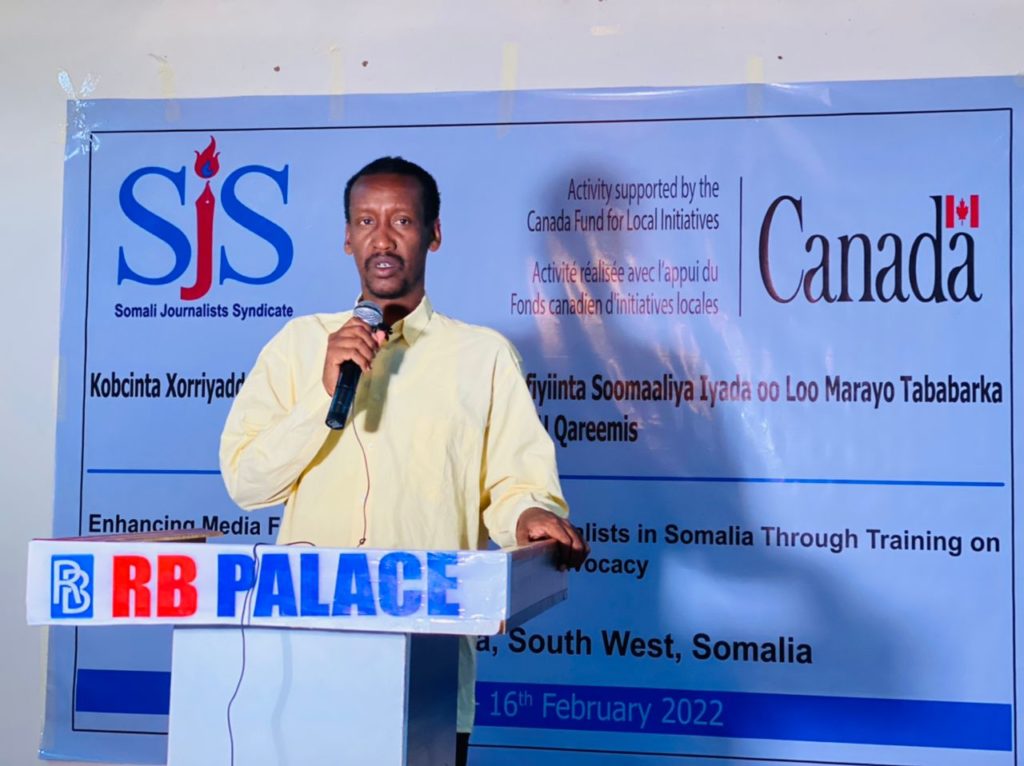
“I am gratified that the safety training has taken place in Baidoa. For a long time, our journalists have been worried about the safety of their lives which has severely affected media freedom. We are proposing that this training be extended to journalists living in rural areas who are unable to travel to cities for training opportunity,” he added.
SJS Press Freedom Coordinator in South West, Adan Hassan Osman, emphasised that the growing number of journalists and the pressure they face from their day-to-day duties have increased local journalists’ need for safety training.
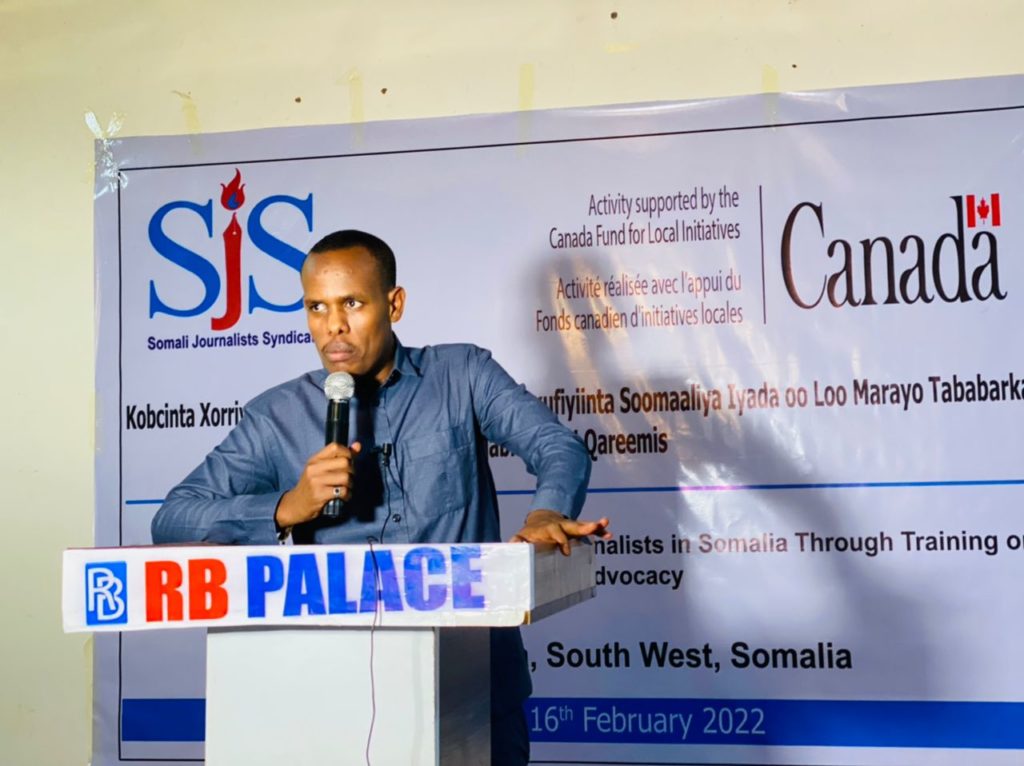
“As attacks on journalists increase, so does the need for training. We have to think about how to get regular and focused professional safety training,” Mr. Adam said “Security challenges and constant threats to journalists also force us to strategise safety precautions for journalists under threat.”
SJS Secretary General, Abdalle Ahmed Mumin, praised South West journalists for their commitment to utilise the training. He also expressed gratitude to Canada Fund for Local Initiatives (CFLI) for its assistance for the training activities.
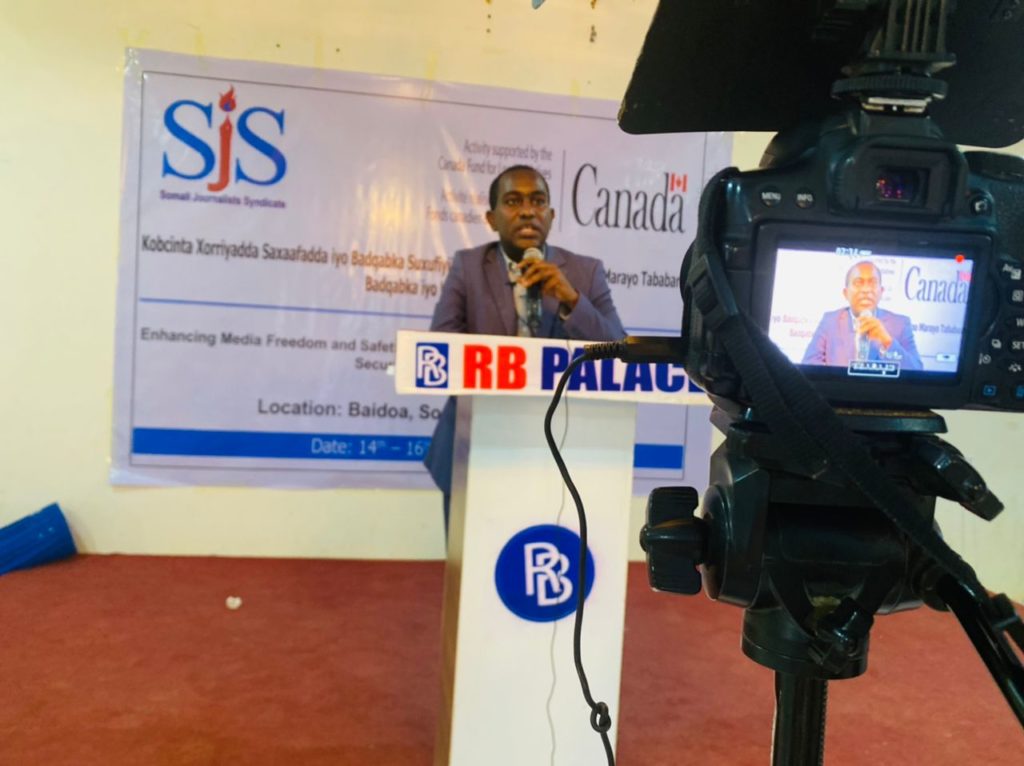
“Somali journalists, including women reporters, are facing increasingly physical and digital threats. However, there are few training opportunities available to them. With this in mind we have initiated these safety trainings,” said SJS Secretary General, Abdalle Mumin. “Attacks on media workers and intimidation, including threats by police and security forces, have left Somali journalists living in constant anxiety about their personal safety and digital devices.”
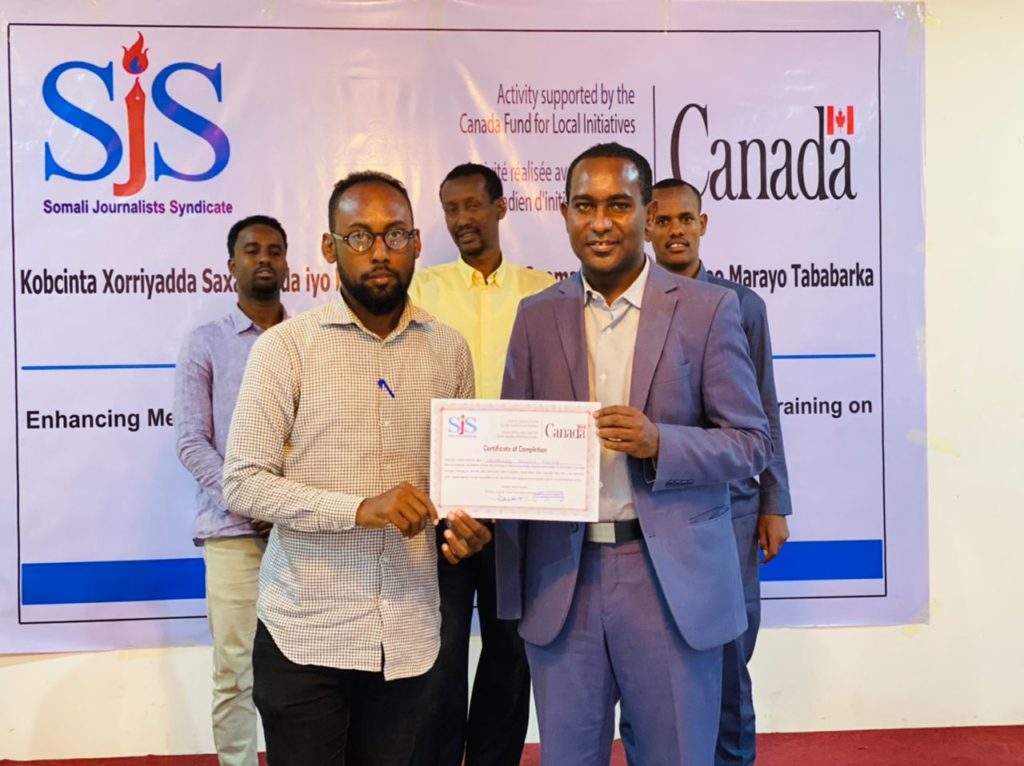
A participant receives certificate of completion at the conclusion of journalists safety training in Baidoa, Wednesday, 16 February, 2022. | PHOTO/SJS. 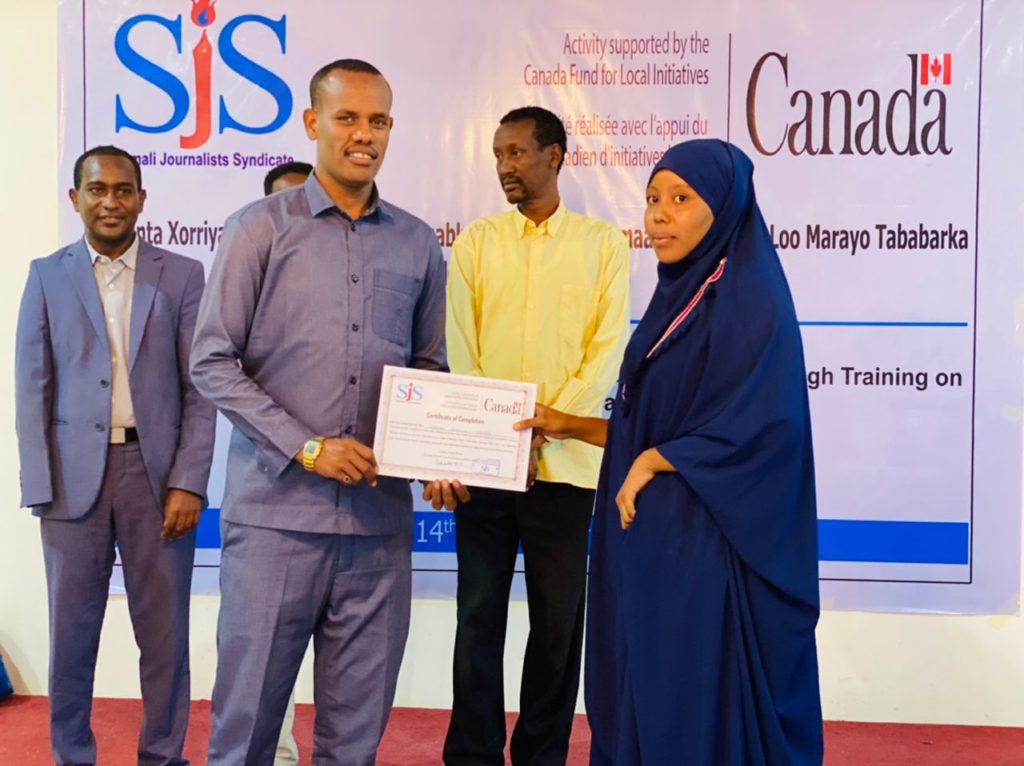
A participant receives certificate of completion at the conclusion of journalists safety training in Baidoa, Wednesday, 16 February, 2022. | PHOTO/SJS. 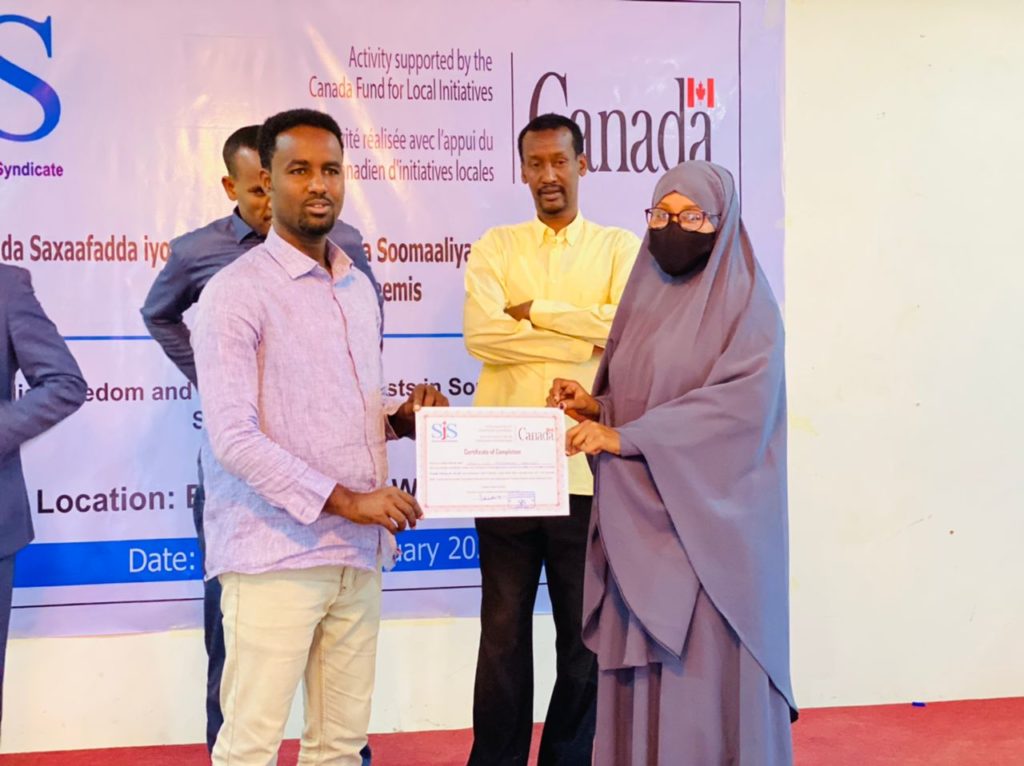
A participant receives certificate of completion at the conclusion of journalists safety training in Baidoa, Wednesday, 16 February, 2022. | PHOTO/SJS.
“These trainings are to empower journalists and enable them to operate in high-risk environments and in challenging conditions. Thanks to the funds provided to us by the Government of Canada’s CFLI, we have been able to train more than 90 Somali journalists across five regions in the country,” added Mr. Mumin.


